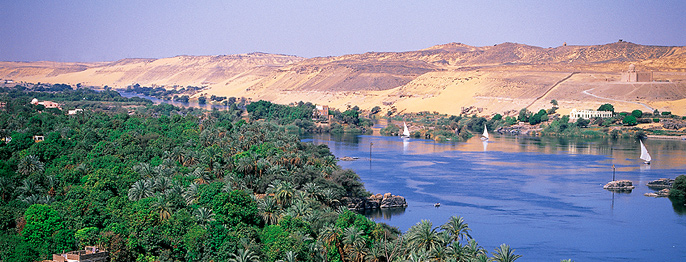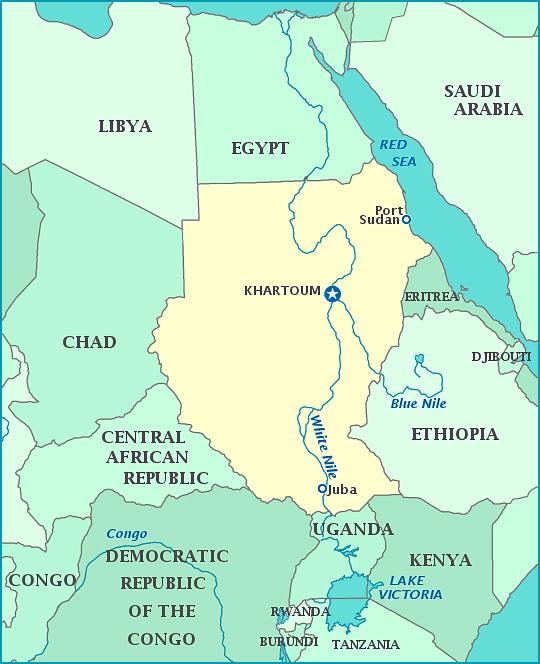
Nile River
“And the Egyptians will I give over into the hand of a cruel lord; and a fierce king shall rule over them, saith the Lord, the LORD of hosts.
And the waters shall fail from the sea, and the river shall be wasted and dried up.
And they shall turn the rivers far away; and the brooks of defence shall be emptied and dried up: the reeds and flags shall wither.
The paper reeds by the brooks, by the mouth of the brooks, and every thing sown by the brooks, shall wither, be driven away, and be no more.
The fishers also shall mourn, and all they that cast angle into the brooks shall lament, and they that spread nets upon the waters shall languish.
Moreover they that work in fine flax, and they that weave networks, shall be confounded.
And they shall be broken in the purposes thereof, all that make sluices and ponds for fish.”
Isaiah 19:4-10
“He and his people with him, the terrible of the nations, shall be brought to destroy the land: and they shall draw their swords against Egypt, and fill the land with the slain.
And I will make the rivers dry, and sell the land into the hand of the wicked: and I will make the land waste, and all that is therein, by the hand of strangers: I the LORD have spoken it.”
Ezekiel 30:11, 12
“And the LORD shall utterly destroy the tongue of the Egyptian sea; and with his mighty wind shall he shake his hand over the river, and shall smite it in the seven streams, and make [men] go over dryshod.”
Isaiah 11:15
John Feeney wrote and photographed "The Last Nile Flood". His writing is great and the photographs are phenomenal.
"Flowing out of a barren desert, from a source “beyond all known horizons,” the Nile had baffled the world for thousands of years. Regular as sun and moon, in the middle of burning summer, without a drop of rain in sight, when all other rivers on earth were drying up, for no apparent reason at all, the Nile rose out of its bed every year, and for three months embraced all of Egypt."
"The ancient Egyptians knew when the flood would come, almost to the hour, but they never knew how much water it would bring to irrigate their fields. Egypt’s prosperity depended not only on the flood but also upon the accurate measurement of its height, for on that depended the allotment of water to its many users and the taxes they would have to pay in the coming year. “Nilometers” built into the river’s banks to measure the flood had, for 4000 years, decreed how much water would be available to irrigate each man’s field."
"What was it that prevented the ancient Egyptians from finding the source of their great stream and perhaps learning how high it would flood in any given year? In its waters the Nile held many secrets. Fierce roaring cataracts, six series of them in a thousand kilometers (600 mi), guarded the river’s upstream reaches, and neither the pharaohs nor the power of Rome could conquer all the cataracts. And beyond the cataracts, deep within southern Sudan, lay “The Land of the Swamps,” a wilderness of trackless reeds that, even in the 19th century, marked the end of the known world. For hundreds of years, no one who followed the Nile into this swamp ever returned."
"The Nile’s source was only revealed a little more than a hundred years ago. In the heart of Africa, European explorers discovered a vast chain of equatorial lakes. And rising to nearly 5000 meters (16,000') above these immense lakes, on the equator between Uganda and the Congo but nonetheless capped with snow, were mountains known as the Ruwenzoris, often identified with Ptolemy’s “Mountains of the Moon.” Around their silent peaks they clasp the frozen vapors of distant oceans. Earth’s greatest single stream, the White Nile, begins upon them. But this was not the complete answer. Why did the river rise so mysteriously every summer to flood Egypt?"
"Away to the east, as impenetrable to outsiders as the swamps, wild as the cataracts, Ethiopia towers above the deserts of Egypt and Sudan. And it was Ethiopia that held the ultimate secret, for here there was another Nile, the Blue Nile, more distant and mightier than even the White."
Wikipedia explains, "The Greek historian Herodotus wrote that "Egypt was the gift of the Nile". An unending source of sustenance, it provided a crucial role in the development of Egyptian civilization. Silt deposits from the Nile made the surrounding land fertile because the river overflowed its banks annually. The Ancient Egyptians cultivated and traded wheat, flax, papyrus and other crops around the Nile."
-------------
(((Now there is a dam being built in Ethiopia that will cause changes to the River Nile. In some places the river is used for a dump and they are dumping garbage into it. There are ten countries that use the water from the Nile River so they all are having their part in the water level lowering.)))
